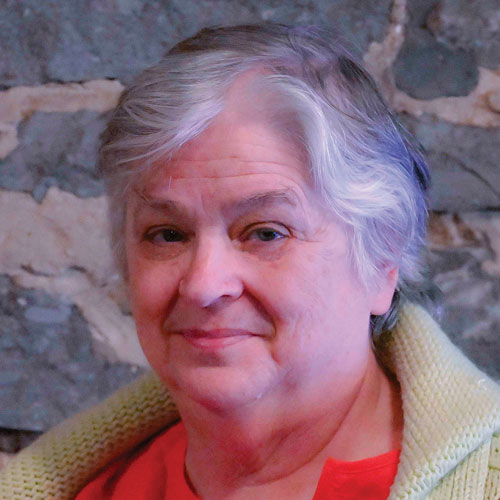CHESTERVILLE – On Feb. 3, the United Counties of Stormont Dundas and Glengarry hosted a virtual Rural Education Symposium that highlighted several important issues facing rural education in Ontario.
During the lengthy event, speakers included Doug Reycraft from the Community Schools Alliance, Marcus Ryan of the Rural Education Task Force from the Thames Valley District School Board. Dr. Paul Bennett spoke on the importance of schools in rural communities. South Dundas Deputy Mayor Kirsten Gardner and South Glengarry Deputy Mayor Stephanie Jaworski provided information on the challenges facing rural students in SDG.
SDG warden Carma Williams welcomed people to the event, commenting how it is hoped the symposium will provide a “greater appreciation of the challenges facing rural schools in our province.” Williams continued, in 2019, the United Counties of SDG identified one of the four strategic priorities being the importance of rural education and subsequently hired Horizon Education Consultants to provide a report identifying the challenges facing students in our area.
Gardner and Jaworski spoke on three case studies in SDG, examining schools in North Glengarry, South Stormont, and South Dundas. Some of the issues raised during their presentation included substandard access to internet, the effect of French Immersion on school population and the cost of bussing. When describing schools in Alexandria, Jaworski mentioned it is not unusual for a minimum of four school buses to travel on each rural road due to each school board using separate school buses for transportation.
Jaworski noted that in the case of South Stormont, the importance of French immersion instruction as relating to school population growth or decline. Longue Sault Public School saw an increase in student population after the introduction of French Immersion. However, Rothwell Osnabruck Elementary, a Core English school, there was a significant impact on school population.
In the case of South Dundas, Gardner mentioned Iroquois Public School is designated as the French Immersion School, with Morrisburg Public School the Core School. She provided viewers with a pie chart that demonstrated that 78 students from Morrisburg attend Iroquois Public School for French Immersion and commented four classrooms at MPS are used for the provision of day care services which are categorized as “empty school spaces”. Gardner noted the success of rural elementary contributes significantly to the success of secondary schools in rural communities.
Some of the challenges facing rural schools included substandard internet access, which is becoming more important due to online learning as well as long bus rides affecting both economic and social wellness. Both Gardner and Jaworski mentioned collaboration between all school boards to enhance the quality of education in the united counties.
Following this presentation, Doug Reycraft of the Community Schools Alliance provided information on the social and economic impacts of school closures. He commented that students should have the opportunity to be educated in their community, with the school often serving as a hub in the community.
School closure in rural areas can result in people not choosing to move to the community or leave it altogether; something that Reycraft mentions doesn’t happen to the same degree in urban communities.
Reycraft explained it is important to base decisions on education infrastructure and look at how changes affect the students and the community. It is difficult to find research that proves the negative impact on the community of rural school closures, to which he added the effects often happen over an extended period. The CSA hired Human Environment Analysis Lab to objectively research the “connection between a community’s viability and vitality and the presence or absence of a school within the community.” The report indicated how closing a school in a single school community has several effects including a reduction in social and economic growth, indicating how schools do serve an important purpose.
The Thames Valley District School Board in southwestern Ontario was created in 1998 with rural, suburban, and urban communities. Marcus Ryan, from the Rural Education Task Force, explained the RETF was initiated by TVDSB trustees with the goal of providing information to them on understanding the role of rural schools. They were tasked with consulting with parents, students, community, or municipal leaders to identify unique challenges and opportunity. Ryan explained that schools in rural areas provide access to a variety of services and events which in urban areas are provided outside the school.
He is hopeful that similar task forces may be set up across the province to help provide more information to those in elected offices. The report will be provided to the school board in October 2022, with Ryan mentioning four themes being touched upon: the community importance of school, equality of programming opportunities, considering the needs of rural communities in decision making and making funding more understandable for the public.
The keynote speaker was Dr. Paul Bennett, director of Schoolhouse Institute; he has extensive knowledge of rural schools and their importance to the community. He provided information on the role of rural schools, as well as providing information on dealing with the accommodation review process. He discussed the central role of schools in rural communities as community hubs, which he suggests is a fundamental approach to school reviews.
Rural schools were described by Bennett as being the heart of a rural community. He suggests that the small schools provide stronger reciprocal relationships between students and staff, and smaller schools are cheaper to run in the long-term. He described situations where community members are invited into the school to contribute to student learning, and in turn, student learning activities contributing to the community.
The symposium provided a significant amount of information for those interested in ensuring the revitalization of local communities and recognizing the important role rural schools’ play in this process.

Carolyn Thompson Goddard, grew up in Chesterville and attended North Dundas District High School. After completing her BA in Political Science at Carleton University she has worked as a medical secretary and library technician. In 2020 she graduated from Algonquin College with a diploma in Journalism and has been a reporter and column writer for The Chesterville Record for over 10 years.











